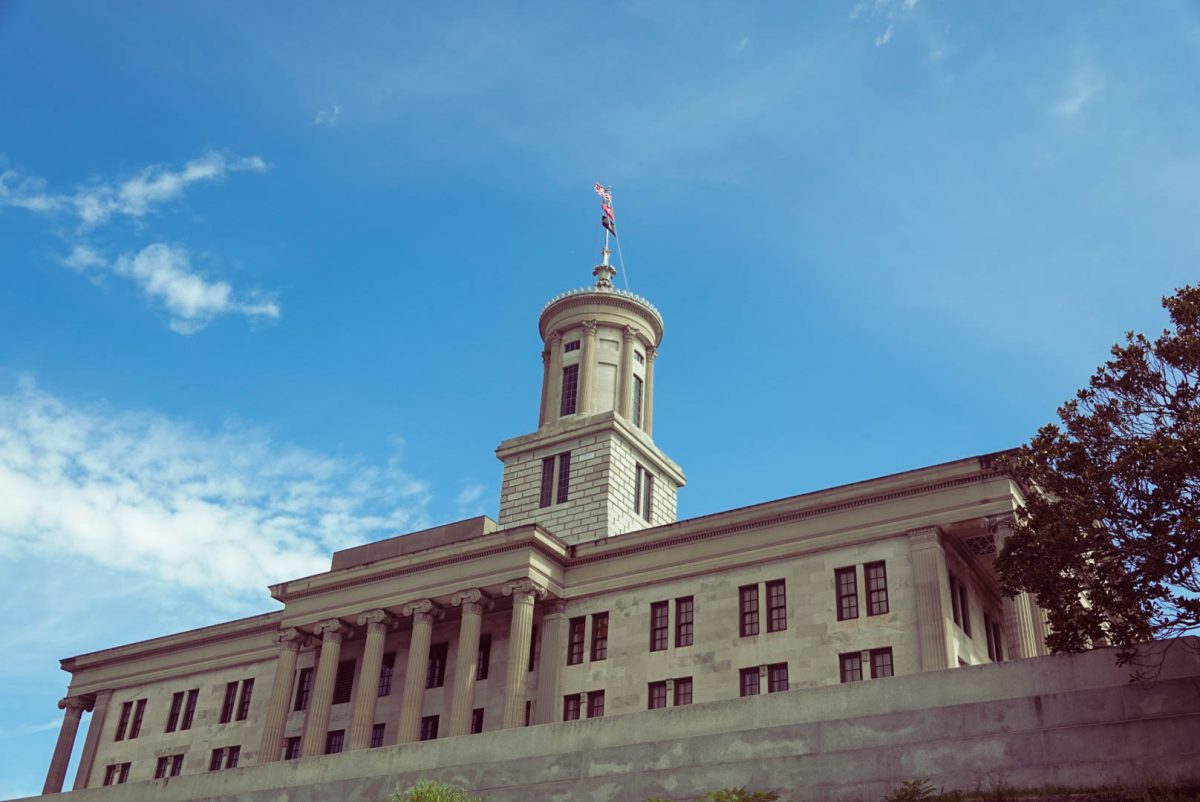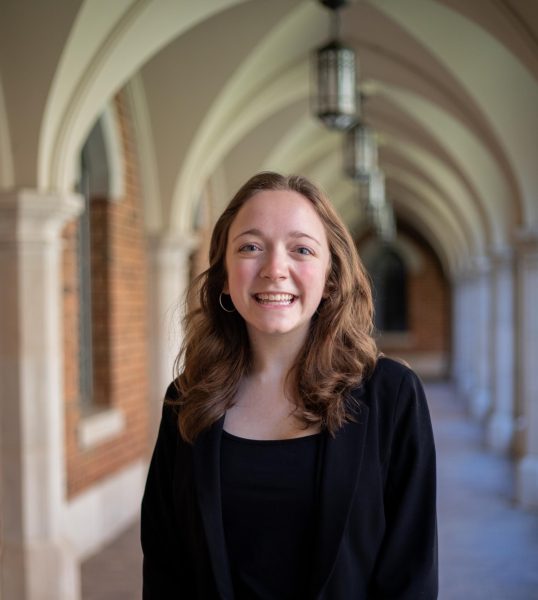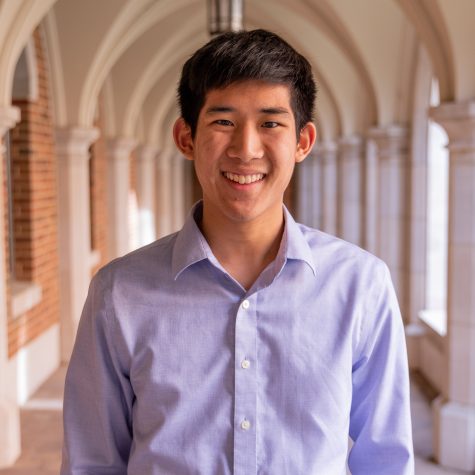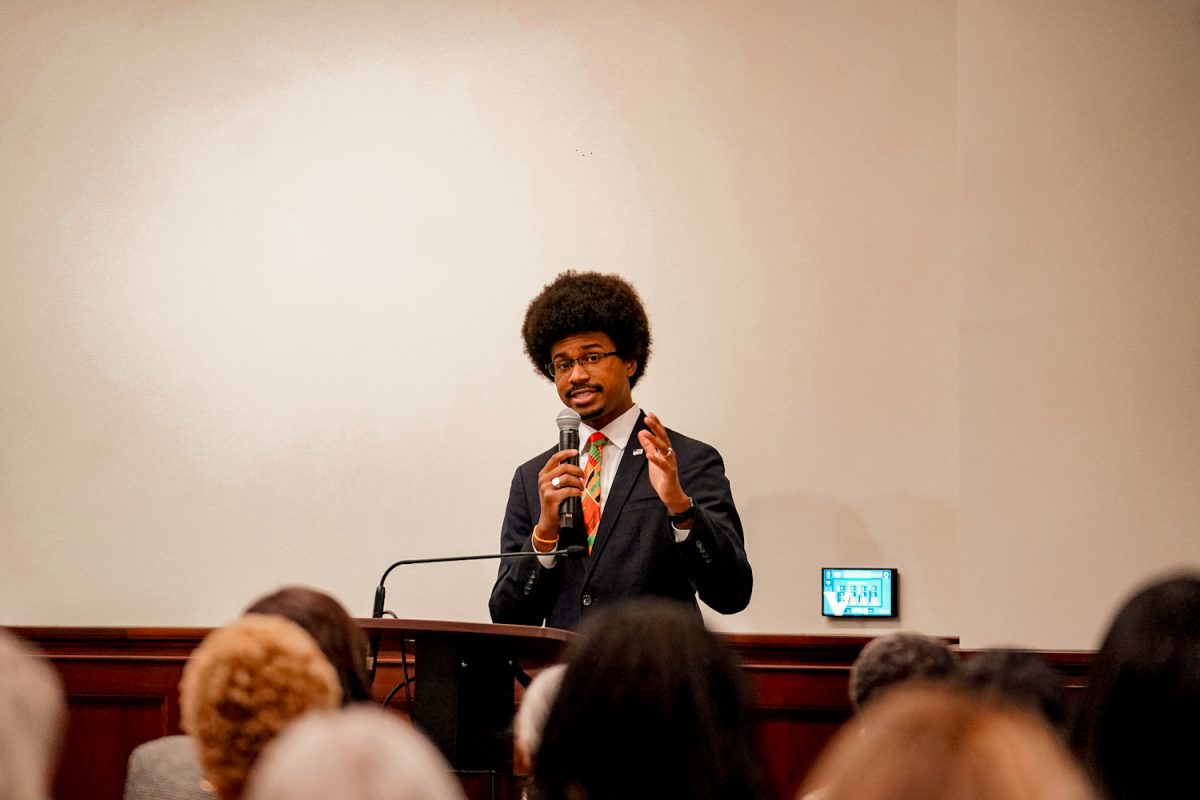On March 5, registered voters in Tennessee cast their ballots for their choice of the presidential nominee for either the Democratic Party or the Republican Party. Ballots in individual counties included primary elections for various local positions, such as school board representatives as well as district and circuit court members. Vanderbilt students reacted to the results of the primary elections and shared their experiences with voting.
Tennessee was one of 16 states and territories to hold their presidential primary elections on “Super Tuesday,” the biggest day for national primaries. The ongoing presidential primaries will occur nationwide through the end of May. Tennessee’s primary comes ahead of a primary for state and federal offices on Aug. 1 and November’s federal presidential election.
Former President Donald Trump emerged victorious in the Tennessee Republican primary, gaining 77.3% of the votes with Nikki Haley receiving 19.5%. In the state’s Democratic primary, incumbent President Joe Biden ran as the only candidate, obtaining 92.2% of the votes while the “uncommitted option” brought in 7.8%. The results of Tennessee’s primaries are similar to most other states, with Trump leading in the Republican Party and Biden as the front-runner for the Democratic Party.
In Davidson County’s Democratic primaries, Vivian Wilhoite was elected as Davidson County Assessor of Property, while Robert Taylor emerged victorious in the Democratic primary for the District 1 Metro Nashville Schools Board of Education race. In a landslide victory over three other candidates in the Democratic primary, Stephanie Williams was elected as Nashville’s Fourth Circuit Court judge.
Distinguished Professor of Political Science John Geer said the results of the state-wide races were “as expected” although he saw surprising outcomes in many local elections.
“There were some local races for school board where extreme Republican candidates lost. There may be some movement away from the extremism that has dominated local Republican politics over the last five years or so,” Geer said. “This development is potentially important.”
Despite Trump’s popularity in the Republican primaries, Haley was able to pick up a large minority of more moderate Republicans, winning the primaries in the District of Columbia and Vermont on March 3 and March 4, respectively.
However, after Trump won in 15 states on Super Tuesday, Haley announced the end of her presidential campaign on March 6. With Haley’s departure, Trump has solidified his position as the Republican Party’s presidential nominee.
Geer discussed the significance of Haley’s popularity — as well as other previous Republican Party candidates like Ron DeSantis and Vivek Ramaswamy — saying the nation-wide primaries have shown a division within the Republican Party.
“That Trump kept losing anywhere from 20 to 40 percent of the vote in the primaries is a sign of weakness. He needs all Republicans if he is to win in November,” Geer said. “The party is divided. Trump is in control, but he has a big segment of the party unhappy with him.”
Vanderbilt College Republicans President Noah Jenkins, a sophomore, also cited Haley’s popularity as significant as he believes the primaries were “supposed to be a total sweep” for Trump. Jenkins said this election cycle is “interesting,” as he believes the American public “pretty much knew” what the outcome of the primaries would be, resulting in the general election beginning earlier than in previous years.
“[The general election] officially starts now because Biden’s obviously going forward and then Trump’s the only one left on the Republican side,” Jenkins said. “We’re starting the general election effectively three to four months early, which I think will be interesting.”
Vandy Votes Vice President Ochuwa Garuba, a sophomore, echoed this sentiment and said the similarities to the previous presidential election signify a growing polarization within American politics. She cited reports of an “enthusiasm gap” among low-income voters and voters of color as a result of this presidential rematch that has led to a disinterest in civic engagement.
“This election feels a bit like Groundhog Day since it’s a rematch of 2020, so I wasn’t surprised by the primary results,” Garuba said. “If anything, it shows how deeply polarized we are as a nation and the importance of mobilizing young people in advancing progressive priorities and social change.”
Tennessee offered both in-person and absentee voting in the primary elections for those registered to vote in the state. Tennessee holds closed primaries, meaning that voters must have been registered with a political party to vote in their primary. Garuba said she voted in her home state of Georgia during spring break, but she believes the convenient timing she experienced was “not a reality” for many students.
“On one hand, political candidates need to make greater appeals to young people, especially those from underrepresented communities, and on the other hand, it is extremely important that policy solutions like automatic voter registration and an on-campus polling place are implemented to make it easier for us to vote,” Garuba said.
Emma Bufkin, a junior, said she voted in her home state of Colorado’s primaries on March 5 by mail in a “surprisingly easy process” as she only had to change her mailing address to Vanderbilt to be sent a ballot.
“The envelope was prepaid so all I had to do was fill out the ballot, sign it and then send it in the mail. I got text and email updates when they received my ballot and when they counted it so I was sure my vote counted,” Bufkin said. “It was actually such a great process.”
In a message to The Hustler, Geer encouraged students to vote despite any discouragement they may feel in the face of polarization in the current political environment.
“I understand the frustration, but the only way to get our system in a better place is through more and more participation,” Geer said. “So I would urge engagement! Do not let the extremes run the show.”
Vanderbilt College Democrats President Chase Mandell, a senior, also expressed enthusiasm for civic engagement among students in an email to The Hustler.
“Vanderbilt College Democrats encourage everyone to voice their vote in the upcoming elections,” Mandell said. “We are excited for this election cycle and hope to see progressive leaders be elected across the country!”







